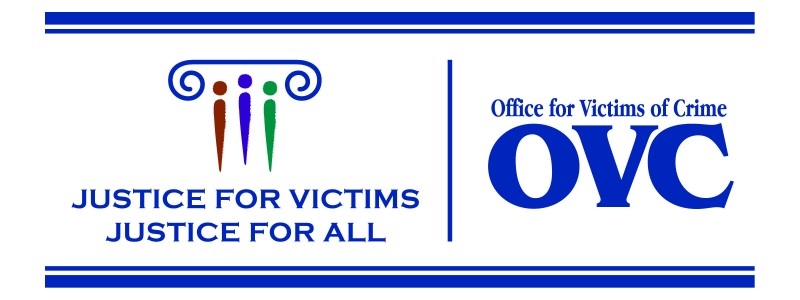Financial Fraud Crime Victims & the United States Department of Justice U.S. Attorney’s Role
As the victim of a federal fraud crime, you may suffer financial and emotional harm and even medical problems relating to your victimization. And you are not alone. Millions of people in the United States are victims of fraud crimes each year.
THE EMOTIONAL IMPACT OF FRAUD VICTIMIZATION
Fraud crime is a personal violation. Your trust in your own judgment, and your trust in others, is often shattered. You may feel a sense of betrayal, especially if the perpetrator is someone you know. You may have hesitated to tell family members, friends, or colleagues about your victimization for fear of criticism. If they then were exploited by the same fraud, you might feel guilty and suffer a sense of isolation.
Fraud crimes can destroy your financial security and sometimes that of your loved ones. If you are elderly, disabled, or on a fixed income – and you lack opportunities to recover your losses – you may face additional trauma, even the loss of your independence.
You may experience feelings about:
- Yourself. That old saying, “Hindsight is 20-20,” is never more true than in financial fraud crimes. Many victims believe they should have known or recognized what was going on, or blame themselves for being too trusting or naive.
- The fraud criminal for taking financial advantage of you, betraying your trust, and jeopardizing your financial independence and security
- Your family, friends and colleagues for blaming you, being upset over what they perceive as your lack of judgment, or withdrawing financial or emotional support.
- The investigative and prosecutorial phases of the justice process, especially in cases that progress slowly or do not result in financial outcomes favorable to you.
- The news media for failing to warn the public about fraud schemes or for exploiting victims when fraud crimes are reported.
- Consumer protection agencies for failing to protect your interests.
- Creditors who don’t understand your dire financial circumstances.
- Community, state and federal agencies if their resources are limited or they do not have the authority to help you.
GENERAL INFORMATION ABOUT FRAUD VICTIMIZATION
What is fraud?
Fraud occurs when a person or business intentionally deceives another with promises of goods, services, or financial benefits that do not exist, were never intended to be provided, or were misrepresented. Typically, victims give money but never receive what they paid for.
Who are the victims of fraud?
Virtually anyone can fall prey to fraudulent crimes. Con artists do not pass over anyone due to such factors as a person’s age, finances, educational level, gender, race, culture, ability, or geographic location. In fact, fraud perpetrators often target certain groups based on these factors.
Why are fraud crimes under-reported?
Although fraud victims are not alone, they often suffer their losses alone and in silence. Shame, guilty, embarrassment, and disbelief are among the reasons that only an estimated 15 percent of the nation’s fraud victims report their crimes to law enforcement. Other reasons include victims’ doubt about their own judgment, a sense of betrayal, and fears about how their family members, friends, and business associates will react. Some victims feel their losses are not large enough to report, do not want to get involved, think law enforcement agencies will not take the crime seriously, or think nothing will result from reporting the crime. Many victims feel they only have themselves to blame, when in reality, calculating, skilled perpetrators are to blame for these criminal acts.
Who commits fraud crimes?
Like their victims, fraud criminals vary educationally, socially, geographically, and financially. Most con-artists make a career of their criminal activities. Some even join professional organizations to legitimize their schemes and project a respectable front.
What makes your case a federal matter?
Fraud crimes can be prosecuted at either the state or federal level, depending on a number of factors:
- Type of fraud scheme and amount of money stolen
- Laws violated (federal, state or both)
- Method of operation
- Use of public services (such as the U.S. Postal Service, Telecommunication systems, and Medicare) that fall under federal or state regulation and authority
- Location of the crime (within a state or across state or national borders)
- What are some common types of fraud?
The weapon of choice for fraud criminals is not a gun or a knife. Rather, it is most often a telephone, letter, glossy publication, or brochure offering free vacations, merchandise, investment opportunities, or services. Not all frauds involve the direct selling of goods to consumers. Some frauds target institutions or businesses. Examples include:
- Telemarketing fraud (telephone solicitation for phony goods or services)
- Mail fraud
- Health care and insurance fraud
- Pension and trust fund fraud
- Credit card and check fraud (including fraud by impersonation resulting from theft of mail or credit cards)
- Identity theft
- Fraud related to securities, commodities, and other investments
- Bank fraud
- Embezzlement
- Pyramid or Ponzi schemes
- Advance fee schemes (419)
- Internet fraud
What kind of documentation do I need to have regarding my case?
In addition to providing written and oral information about the case, you will be required to show documentation of your financial losses. You should save all paperwork relating to the crime, including such items as letters of solicitation, prospectuses, canceled checks, cash receipts, receipts for cashier’s checks or money orders, bank statements, investment statements, or medical statements. If your case proceeds to trial and a conviction is secured, the judge will need this documentation to determine whether the offender will be ordered to pay restitution for your losses.
Does the U.S. Attorney’s Office offer any services to assist victims?
Yes, there are many services provided by our office to assist you if you are a victim of a crime. The staff of the Victim-Witness Program will work to become aware of your needs, feelings and concerns, and to answer questions you may have about participating in the case.
ONLY FOR U.S. CITIZENS AND RESIDENTS
TO REACH A U.S. ATTORNEY’S OFFICE: https://www.justice.gov/usao/find-your-united-states-attorney
REQUESTING RESTITUTION
In federal court, a convicted offender may be ordered to reimburse victims for financial losses incurred due to the offender’s crime. This reimbursement is called “restitution,” and it may be ordered for lost income, property damage, counseling, medical expenses, funeral costs or other financial costs directly related to the crime.
Some financial losses are not eligible for restitution, such as state or federal taxes, interest, penalties or fines; expenses for private legal representation relating to personal or business legal issues raised by the crime; fees for tax advisors, accountants, or other professionals; and legal expenses for the civil recovery of financial losses. Losses for “pain & suffering” are also not eligible for restitution.
To determine the amount of restitution to be ordered, the U.S. Probation Office gathers financial loss information from the investigative agent(s), the AUSA and victims prior to sentencing. Often this information is obtained by having the victims complete a “Victim Impact Statement.” If you would like to complete a victim impact statement, please contact the Victim-Witness Program staff. A court may also decline to order restitution if it finds that determining restitution in a case is too complex.
At sentencing, the judge then enters an “Order for Restitution,” directing the offender to reimburse victims for some or all of the offense-related financial losses. Compliance with the Order of Restitution automatically becomes a condition of the offender’s probation or supervised release. However, even before the offender is released from prison, he or she is encouraged to begin repaying restitution by participating in the Inmate Financial Responsibility Program. Through this program, a percentage of the inmate’s prison wages is applied to his or her restitution obligations.
Even if restitution is ordered, how likely is it I will receive any money?
The U.S. Attorney’s Office Financial Litigation Unit (FLU) is charged with enforcing orders of restitution, and monitors efforts in enforcing a Judgment if defendant assets or income are identified. FLU will pursue various means to enforce restitution, as its resources permit, on behalf of identified victims for 20 years from the filing date of the Judgment, plus the time period of actual incarceration, or until death of the defendant. In addition, while a defendant is under the supervision of a probation officer, that probation officer will also monitor and ensure appropriate restitution is paid, where possible.
Realistically, however, the chance of full recovery is very low. Many defendants have already spent the money that they stole, and will not have sufficient assets to repay their victims. Many defendants owe very large amounts of restitution to a large number of victims. In federal cases, restitution in the hundreds of thousands or millions of dollars is not unusual. While defendants may make partial payments toward the full restitution owed, it is rare that defendants are able to fully pay the entire restitution amount owed.
What else can I do about my financial loss?
Some losses are tax deductible. Because tax laws are complicated and our office cannot offer tax advice, consult a qualified tax advisor or the Internal Revenue Service to see if your losses qualify.
If you believe the fraud perpetrator has assets, you may be able to recover some losses through a civil lawsuit. Contact your state or local bar association for the names of attorneys who specialize in this area of law to determine if your case is appropriate for civil action.
What can I do to address financial or credit problems?
If your losses were severe and you are unable to meet your financial obligations, or if your identity was stolen as part of the crime, your credit rating may be affected. Consider some of these options:
Contact your creditors immediately. Creditors will often work with you to reduce or modify your payments.
Consult a nonprofit consumer credit counseling service, which may be able to negotiate new payment arrangements or consolidate or reduce payments or interest.
Contact your local or national credit reporting agencies about your victimization.
National Credit Reporting Agencies
- Equifax Credit Information Services
Consumer Fraud Division
P.O. Box 105069
Atlanta, GA 30348
(800) 525-6285
www.equifax.com - Experian
National Consumer Assistance
P.O. Box 1017
Allen, TX 75013
(888) 397-3742
www.experian.com - Transunion
Fraud Victim Assistance Department
P.O. Box 6790
Fullerton, CA 92834
(800) 680-7289
www.transunion.com
To report the fraudulent use of your checks:
- Check Rite (800) 766-2748
- Equifax-Telecredit (800) 437-5120
- NPC (800) 526-5380
- Tele-Check (800) 366-2425
- Chex Systems (800) 328-5121
Please Note:
The Society fo Citizens Against Romance Scams






Please Leave A Comment - Tell Us What You Think About This!